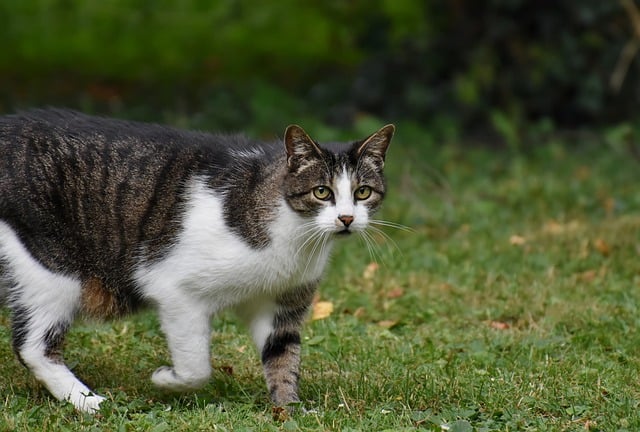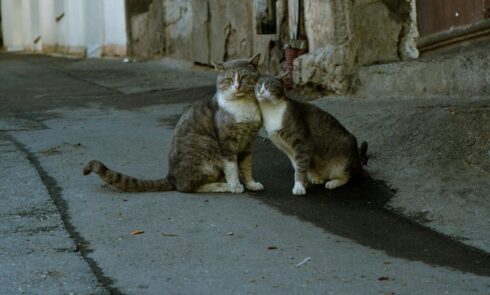In the land of Kiwis, New Zealand, there emerges a pressing matter concerning feline health that demands our attention. Amidst the nation’s exceptional biodiversity and matchless environmental specifics, immunization for cats ascends as an imperative health tactic to uphold.
A teeming constellation of infectious feline diseases is found across disparate regions here. Consequently, cat vaccinations in NZ have affirmed their indispensability. Their role? Ensuring not just the vitality of domesticated pets but also contributing significantly towards safeguarding the wellbeing of indigenous wildlife populations.
Immunization stands at the forefront in curbing disease spread. It acts as a bulwark against infection transmission amongst felines, promising a decline in contagion rates within this population segment.
Yet bestowing upon your beloved pet its rightful vaccine dosage isn’t devoid of complexity; it’s far from being a linear process. The choice and necessity for specific vaccinations can be swayed by numerous factors making it quite labyrinthine indeed!
Consider elements such as your furball’s lifestyle choices – are they homebodies or outdoor adventurers? Or perhaps their age plays an influencing factor – kittens versus seniors? How about their overall health status or even breed-specific predispositions?
Furthermore, one cannot overlook geographical specificity within New Zealand itself! Regional variations directly influence different immunization needs due to diverse climates and prevalence of specific diseases unique to each area.
Given these intricacies involved with cat-vaccinations, consulting with an experienced vet morphs into more than just responsible cat ownership-it becomes essential for ensuring optimal health outcomes.
Benefits and Importance of Vaccination for Feline Companions
The quest for longevity and vibrancy in the lives of our cherished New Zealand feline companions swirls around an essential pivot—vaccinations. As pet parents frequently ponder, “What vaccination do cats need in NZ?”. The answer is deeply enmeshed within their overall health preservation. Vaccinations wield a formidable shield against a host of menacing diseases that have the potential to cast a grim shadow over their existence, with some even bearing fatal outcomes.
From sinister viruses like Feline Immunodeficiency Virus (FIV) and Feline Leukaemia Virus (FeLV) to more common yet equally detrimental ailments such as cat ‘flu and Feline Enteritis – this broad spectrum of vaccine-preventable conditions emphasizes the critical importance of well-crafted vaccination strategies.
Vaccinations’ impact extends beyond individual protection; they are also pillars supporting community-wide disease control. They stand as sentinels preventing health issues from taking root within communities, considerably curbing contagion spread—an idea encapsulated by the term ‘herd immunity’. This concept gains heightened significance in areas teeming with pets, where disease transmission risks skyrocket. By safeguarding individual cats, we enhance collective feline wellness—a testament to vaccinations being not only crucial but ethically imperative too.
Types of Vaccines Available for Cats in New Zealand

In the land of the Kiwis, New Zealand, a solid recommendation is given for both indoor and outdoor feline friends to undergo routine vaccinations. This regular practice ensures they enjoy peak health conditions and helps in curbing the spread of contagious maladies.
A conundrum often presented is this – “Do indoor cats require vaccines?” The response rings loud and clear – absolutely! Indoor felines are notably vulnerable to illnesses transmitted via air or brought into their environment through clothing, footwear or other pets. On the flip side, outdoor cats interact with a plethora of diseases sourced from nature and fellow creatures. Henceforth, periodic immunization holds paramount importance for your cat’s wellbeing irrespective of its dwelling preference.
Fundamental vaccines urged for all cats generally comprise Feline Panleukopenia (widely known as Feline Distemper), Feline calicivirus, Rhinotracheitis caused by Feline herpesvirus type I ,and Rabies. In New Zealand’s context specifically there are additional non-core lifestyle-dependent shots like those against Feline Leukaemia and Feline Immunodeficiency Virus readily available too. Though not mandatory for every furred friend out there these specific inoculations are suggested especially if they reside in high-risk vicinities or have distinctive lifestyle dynamics at play.
To ensure best results each furry companion should follow a vaccination schedule meticulously curated by an accredited veterinarian that counterpoints their unique way of life and current state of health.
The Ideal Vaccination Schedule for Your Feline Friend
In light of the prevailing guidelines and scholarly research in veterinary science, we are about to unravel the enigmatic timelines that compose the flawless vaccination regimen for your feline confidant. The first steps on this immunization odyssey for neonatal kittens usually commence with an initial series of inoculations administered between six to eight weeks from birth. The type of vaccine and lifestyle led by your cherished pet dictate that these be succeeded by booster injections at intervals spanning three weeks until they reach their 16th week.
An intriguing conundrum often voiced by cat guardians is: “which vaccines are essential for cats, and when should they receive them?” It is paramount to comprehend that core vaccinations – namely Feline Calicivirus (FCV), Feline Herpesvirus type 1 (FHV1), and Feline Parvovirus (FPV) or as it’s more commonly known, feline distemper – must be imparted onto all cats irrespective of their environment or way of life. These shots are typically combined into one injection given initially between six to eight weeks old, followed thereafter by boosters. Conversely, non-core vaccines such as those protecting against Feline Leukemia Virus (FeLV) and Chlamydophila Felis are only advocated under specific conditions pertaining to factors like the cat’s outdoor exposure risk, geographical habitat, and overall health status. A yearly medical examination subsequently guides veterinarians in determining whether annual or triennial boosters need administering.
To further elucidate, the following is a detailed breakdown of an ideal vaccination schedule for cats:
- Between six to eight weeks: The first series of core vaccinations – FCV, FHV1 and FPV should be administered. This initial round of shots safeguards kittens from potentially fatal diseases.
- Every three weeks until 16th week: Booster injections for the core vaccines are given at intervals spanning three weeks until your feline friend reaches their 16th week. These boosters ensure that the immunity provided by the initial inoculations remains effective.
- One year after last kitten shot: A booster shot is usually recommended one year after the final kitten vaccination. This helps maintain your cat’s immunity against these diseases as they grow into adulthood.
- Annually or triennially thereafter (depending on health status): After this point, booster shots may be required every one to three years depending on factors such as outdoor exposure risk, geographical habitat and overall health status.
Non-core vaccines like FeLV and Chlamydophila Felis are only necessary under specific conditions:
- Feline Leukemia Virus (FeLV) Vaccine: Recommended if your cat spends time outdoors or lives with other cats that do so. It’s typically given initially between nine to twelve weeks old followed by yearly boosters.
- Chlamydophila Felis Vaccine: Usually suggested in multi-cat households where there’s a high risk of infection due to close contact among multiple pets. Initial dose can be given at nine weeks old with annual revaccination advised in high-risk situations.
Regular vet check-ups will help determine which non-core vaccines your cat needs based on their lifestyle and environmental factors. Remember, each pet is unique and thus requires individualized care catered specifically towards its well-being.
Possible Side Effects and Risks of Feline Vaccinations
In the realm of medical procedures, feline immunizations are not without their potential drawbacks. What’s included in the yearly jabs for our furry friends? Nonessential vaccines such as those for Feline Leukemia Virus (FeLV) and Rabies are administered annually based on possible exposure and risk evaluation. The spectrum of side effects from these vaccinations can span from mild to severe, entailing symptoms like fever, decreased appetite, sluggishness, even vomiting. In exceedingly rare instances, cats might manifest tumors referred to as fibrosarcomas at the injection site.
For pet parents who dote on their felines, these potential side effects may breed concern. However it’s crucial to bear in mind that severe reactions occur rarely and generally materialize within a few hours up to several days following vaccination. Progressions in veterinary science have facilitated the development of safer, more sophisticated vaccines thereby substantially curtailing these risks. It warrants mention that dangers linked with foregoing vaccination – such as contracting lethal viruses like Feline Leukemia Virus (FeLV) and Feline Immunodeficiency Virus (FIV) – vastly overshadow any risk potentially arising from vaccine-induced side effects themselves. Cat owners would be wise to promptly notify their vet should they notice any untoward reactions post-vaccination.
Myths and Misconceptions Surrounding Cat Vaccinations
A pervasive fallacy that whirls within the sphere of feline immunization is the conjecture that indoor cats are exempt from vaccination requirements. Such a conviction is fundamentally flawed, given that domesticated felines aren’t entirely ironclad against possible infectious agents. Contamination can materialize via diverse channels such as vermin infestation, fresh arrivals in the home (including both human and fellow felines), or even through contamination on an owner’s attire or footwear. Furthermore, should a housebound cat inadvertently find itself outdoors, its unvaccinated status amplifies its susceptibility to diseases considerably. Consequently, irrespective of a cat’s habitation circumstances, it remains vital to comply with advised vaccination routines.
An additional widespread misunderstanding dwells in the belief that vaccines allegedly inflict harm and contribute to conditions like Feline Immunodeficiency Virus (FIV) or induce allergies. The reality is these vaccinations undergo stringent assessments and safety appraisals before receiving approval for application. In sporadic instances where adverse reactions transpire, they are generally mild and transient – slight feverishness or sensitivity at the injection point being common symptoms. Although severe responses are feasible, they’re extraordinarily uncommon events. It’s imperative to comprehend that any risk associated with these rare complications pales when contrasted with the safeguard proffered against potentially fatal illnesses.
Veterinary Recommendations for Cat Vaccinations
For the comprehensive health and vitality of our feline friends, New Zealand’s veterinarians propose specific guidelines for cat inoculations. They balance a variety of elements such as the life stage of the cat, their daily habits, overall health condition, and susceptibility to contagious ailments when making these suggestions. Notably for kittens, it is advocated that vaccination protocol commences from six to eight weeks old with subsequent booster injections in later years.
Essential vaccines like those against feline calicivirus, herpesvirus type I common in cats and rabies are strongly backed due to their pivotal safeguard against lethal illnesses while non-essential ones are given based on each cat’s living conditions and exposure risk. Recognising every feline as distinct individuals; veterinary experts across New Zealand craft an individualised immunisation plan which guarantees their prime health state and extended lifespan. It becomes crucial then for all cat guardians to seek advice from their vet professionals and strictly follow this specified vaccination timeline.
FAQ
Feline immunization is essentially the process of inoculating cats, thereby enhancing their immune response to various ailments. This practice holds significant weight in New Zealand due to the widespread occurrence of certain cat-specific diseases such as Feline Immunodeficiency Virus (FIV) and Feline Leukaemia Virus (FeLV).
Vaccination serves as a protective shield for your furry friend against potentially fatal diseases. Moreover, it inhibits the transmission of infectious ailments to other felines, aids in maintaining overall cat population health, and may lighten your future veterinary expenses by steering clear from expensive treatments for preventable conditions.
The primary categories of vaccines available include core vaccines – recommended universally for all cats (such as those combating Feline Panleukopenia, Feline Herpesvirus, and Feline Calicivirus), alongside non-core ones that are administered based on specific lifestyle factors and exposure risk like FeLV and FIV.
Generally speaking, kittens undergo their inaugural round of vaccinations when they’re between 6-8 weeks old which is followed up every 3-4 weeks until they reach an age bracket of 16 weeks. Adult cats usually need booster shots every one to three years considering vaccine type along with exposure risk level.
A majority of our furred companions handle vaccinations well; however, a few might exhibit mild side effects like feverish symptoms or reduced appetite levels. Severe reactions occur only sporadically but most often than not benefits outweigh risks due to the level of protection they offer against disease.
The notion that indoor cats are exempted from requiring vaccines, or that inoculations could trigger the diseases they’re created to prevent, are both misguided. Indoor felines too have exposure to pathogens and though vaccines occasionally induce mild signs, they certainly do not activate full-fledged diseases.
The usual consensus among veterinarians is that all kittens should undergo core vaccinations with booster frequency during adulthood being determined by factors like health status, lifestyle choices and risk of disease exposure. It would be prudent on your part to liaise with your vet for deciding upon an appropriate vaccination schedule for your pet.


